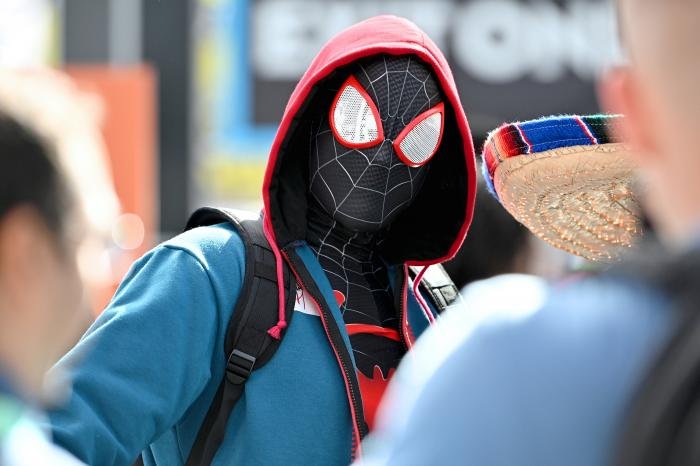Who knows where we’d be if Marvel Comics hadn’t been facing bankruptcy in the ’90s? Their financial struggles forced them to sell the film and television rights to some of their most popular characters, like Spider-Man and the X-Men. Those characters would go on to have incredibly successful representation in film, a little less than a decade before the MCU would get its start on the shoulders of Iron Man, a character most people were not familiar with.
That would eventually change, as the MCU rose in popularity. Iron Man became a household name, and the company that produced a slew of X-Men films, 20th Century Fox, would find themselves falling behind the MCU in terms of popularity. When Disney purchased Fox and its library, it meant that the media landscape was going to continue getting smaller, and that a lot of Marvel’s heroes (including the Fantastic Four) were back under one roof. Despite the character having already made an MCU appearance at this point, Spider-Man’s home remains complicated.
Sony Pictures has had much success with the wall-crawler, even when the reception has been lukewarm. So, instead of having to be sold, but also suffering from an email hack perpetrated by North Korea (simpler times?), Sony decided to, like, lease Spider-Man to the MCU, allowing him to appear in Captain America: Civil War (which was neither civil nor a war). That led to several MCU Spider-Man films that were co-produced by Sony, while they were trying to set up their own Spidey universe without ole web head.
On one hand, their attempts have been a disaster. Movies like Morbius, Madame Web, and Kraven the Hunter will go down as some of the worst comic book movies in the genre’s history, which is really saying something. They were both directionless and intent on creating something that didn’t hold together. The Venom films may have been (relatively) well received, but Sony’s live-action Spidey(less) Universe was more or less dead on arrival. Its animated takes have been far more successful.
Spider-Man: Into the Spiderverse is one of the best comic book movies ever made (which, again, really says something). The animated film introduced movie audiences to Miles Morales, a Spider-Man of African American and Puerto Rican heritage. Morales had his debut in the comics only seven years prior. Getting a big screen adaptation was a huge deal, made bigger by the fact that the movie rips. It was packed with emotion, character development, and representation for the hero’s background that felt deeply authentic. The same can be said for the film’s sequel, Across the Spiderverse, which also included allegories that people have pointed to as being trans-positive. The MCU could never.
Yes, Black Panther exists. It was a cultural phenomenon that proved people of color enjoy seeing themselves accurately represented onscreen (shocker, I know). The same could be said for the sequel, the success of which requires much context. But Black Panther feels like an exception. Marvel doesn’t really excel at authentic representation or themes that feel culturally significant. They don’t push many boundaries. All of this is to say I’m content with Kevin Feige revealing recently that Marvel has been told to steer clear of Miles Morales.
The strange deal they have with Sony has allowed them to use other Spider-Man characters, but when asked what was happening with a live-action Miles, Feige quickly shut it down. “That is nowhere,” he explained. “Sony has their brilliant, genius, incredible Spider-Verse animated franchise going, and until that finishes, we’ve been told to stay away.” Good! That is, honestly, preferable to the alternative. That isn’t to say I wouldn’t welcome a live-action Miles Morales. I just don’t need it that badly.
There was a time when, since so much was getting adapted (successfully, I might add), it made sense to hope that the MCU would gain access to characters it had lost in the ’90s fire sale. Now, I’m more apprehensive. Even with Feige saying that they’ve scaled back productions in the same interview, the company still feels all over the place. Thunderbolts was a welcome change, with earnest stakes and characters, but it’s been couched between a poorly received Captain America sequel that featured, for the first time, an African-American lead and a Fantastic Four film that was supposed to be a triumphant return home for the team but has already begun to see tepid reactions online.
Maybe the MCU could knock Miles Morales out of the park, but it’s more than just being a good superhero film, and Ryan Coogler understood that when he made Black Panther. Some of these characters aren’t just toys that can be swapped in and out for whatever purpose is required. They are important, culturally, to a lot of people, and don’t need to be hamfisted into scenarios that just need a person in tights to make sense. Maybe, if/when the Spiderverse ends and the MCU can use Miles, Feige can find a director who understands what needs to be done. Until then, I’m happy with him staying far away.


